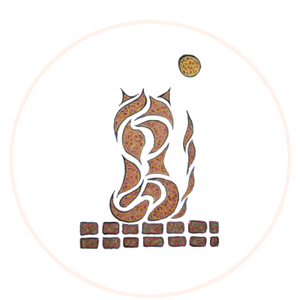We tend to think of language as a tool that provides clarity, but this isn’t always the case. In fact, language can also be considered humankind’s original lie...
Stripe is one of the world’s leading payment gateway brands, but it doesn’t service a single African country. The only way around this is to pay Stripe $500 to open a shell company in the USA – a process it points out may or may not be successful.
Querying this, I was shoved up the ladder to a consultant who insisted in brutally friendly terms that Stripe by no means excludes the continent of Africa. In fact, she said, anyone in the world is free to use Stripe. All you have to do if you’re outside one of their countries of operation is cough up $500 to go through the shell company process, or provide proof of American address or business registration.
Which is a bit like saying anyone in the world is free to live and work in America - all they have to do is provide green card details.
Words don’t necessarily illuminate
I admitted defeat, but the Stripe representative’s vehemence was intriguing. I think it’s safe to presume ignoring Africa wasn’t her personal call, but there she was, thumping out indignant replies on behalf of her brand. It fascinates me when people stand so tall behind a blatant stink bomb. What are the forces at play? If Africa mattered, Stripe would service it. But it doesn’t, and they don’t. Why does an employee find it so hard to confirm the simple facts of the operation?
Passionate doublespeak such as the Stripe rep offered up ultimately sees language operate as a brute force tool of confusion. And while this can feel like subversion of language’s ‘true’ purpose (especially when you’re in the thick of a customer service interaction), this isn’t necessarily the case.
Iain McGilchrist’s The Master and His Emissary: The Divided Brain and the Making of the Western World is a book about the divided human brain. In one of many elaborate tangents, McGilchrist explores the idea of language as the original lie: a mode of communication that allowed humans to start shaping others’ experiences. A tool that allowed us to fetter this, while emphasising that.
McGilchrist asks the reader to imagine a pre-language world where music and dance and rhythmic ritual were the primary modes of lived experience, and how dramatically the arrival of language would have changed things. In his presentation, the ability that language offers to both direct and misdirect the reality of lived experience can easily be considered as the original lie.
Our best stories are often fibs
This can sound a little abstract, but it’s intriguing how once the idea lands it forces you to re-examine some basics. Especially the language we use at group and organisational level, which often seems to offer both a channel for important ideas and a way to slip around awkward realities.
There can be no more compelling case study than the story of South African cricketer Makhaya Ntini’s jog.
During his distinguished career Ntini became famous for choosing to jog to and from the hotel, instead of taking the team bus. When asked about this, he gave his trademark grin and said he liked to stay fit. This amused the commentators greatly and the story took on a life of its own. It was told on air while he was playing, and was often repeated over many years in interviews with other Proteas cricketers, always with an atmosphere of back slapping humour.
Now, in 2021, South Africa’s black cricketers are taking the stage to tell painful stories of exclusion and straight-up racism. One of the first to emerge was Ntini’s confession that he ran back to the hotel not to stay fit, but because has was lonely. Because he was, as a matter of course, looked through and past by teammates who never thought about including him in their conversations, because he meant nothing to them personally. Ntini needed a story that would allow him to manage a very tough personal situation, and the team welcomed a lie that would allow them to carry on exactly as they were. The country swallowed it whole, welcoming the idea of Ntini as the ultimate insider and outsider, simultaneously. There was a price to be paid, of course, but as with all great social lies the tab is being picked up mostly by succeeding generations.
There are benefits to digging a little deeper
Once you start looking at language as a tool of deceit as much as illumination, you quickly get the sense that, intentionally or not, the stories that are told with the most passion and emotion – the very stories that are viewed as central to a person’s or organisation’s identity – often also include epic misdirection. Sometimes this is the result of cynical manipulation, as with Fox News’ use of the ‘Fair and Balanced’ pay-off line, but equally often it results from a simple desire to see the world in a particular way. Stripe’s insistence that it services the world is just one example. The South African rugby team’s wonderfully myopic claim that its performance profoundly influences the mood of the country is another. There are many more.
Viewed from this perspective, there is a strong case to be made for individuals and organisations actively developing the skill of stepping back and re-examining the details of their favourite yarns. From brand pay-off lines to political manifestos to those old chestnuts from our younger years, digging deeply into the tales we tell with gusto but no longer really think about can reveal useful insights into how much we’re deluding ourselves about where we are right now. And once we have a better grip on this reality, plotting a viable path ahead suddenly becomes a great deal easier.
Links
Makhaya Ntini reveals his loneliness and isolation in Proteas team
